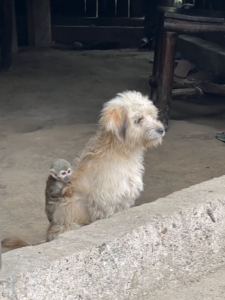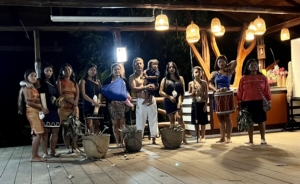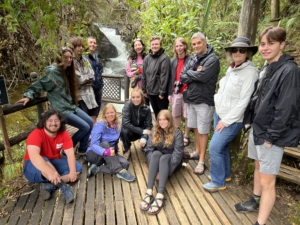SOU students enjoying EcoAdventure in Ecuador
Students and faculty from SOU’s Environmental Science and Policy program are currently in Ecuador, wrapping up the field course “EcoAdventure: Andes to Amazon,” which focuses on tourism’s impact on the culture, environment and biodiversity of that South American country and the region surrounding it.
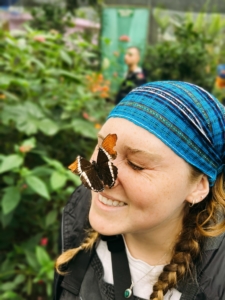 The trip is led by Vincent Smith, director of the university’s Division of Business, Communication and the Environment. Past versions of the annual EcoAdventure excursion have taken students to northern California’s Lassen and Yosemite national parks, Mexico’s Yucatan Peninsula, Costa Rica and, last year, to the Bear Creek Greenway to help with restoration efforts from the 2020 Almeda Fire.
The trip is led by Vincent Smith, director of the university’s Division of Business, Communication and the Environment. Past versions of the annual EcoAdventure excursion have taken students to northern California’s Lassen and Yosemite national parks, Mexico’s Yucatan Peninsula, Costa Rica and, last year, to the Bear Creek Greenway to help with restoration efforts from the 2020 Almeda Fire.
Each year’s EcoAdventure courses are intended to connect students with real-world environmental issues and create an atmosphere of investigation and problem-solving. The focus this year is on sustainable development and balancing the benefits of tourism with the cultural values of the Amazon region.
“A large part of our goal is to change the script on how tourism takes place in places like the Amazon,” Smith said. “Rather than passing through a place, our goal is to be in the place with the people there.”
For example, students in this year’s course joined a group in an indigenous Kichwa village, combatting patriarchy and promoting women’s rights. The group has also enjoyed more tourist-related pursuits, including up-close experiences with monkeys, parrots and a boa constrictor.
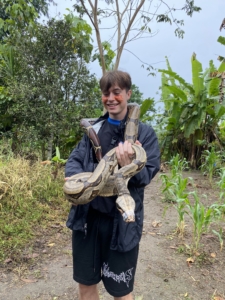 Participants in the SOU course toured the Mindo Wildlife Canopy and Ecuador’s capital Quito, visited the Butterfly and Hummingbird Gardens, rafted in the Napo River, took a Pacmanca cooking class and visited the Papallacta Hot Springs.
Participants in the SOU course toured the Mindo Wildlife Canopy and Ecuador’s capital Quito, visited the Butterfly and Hummingbird Gardens, rafted in the Napo River, took a Pacmanca cooking class and visited the Papallacta Hot Springs.
The total cost of the course was about $4,000, including six credits of tuition and a trip fee that included airfare, lodging, food and ground transportation. The EcoAdventure courses are open to all SOU students, regardless of their major – and this year’s students come from SOU’s communication, psychology and art programs, along with Environmental Science and Policy.
